Search
Remove Ads
Advertisement
Summary 
Loading AI-generated summary based on World History Encyclopedia articles ...
Search Results
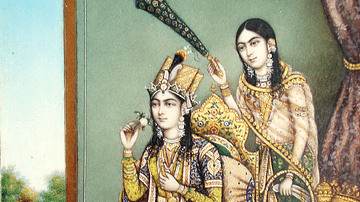
Article
Royal Women in the Mughal Empire
It was not only the Mughal emperors that left an indelible mark in the history of the Indian subcontinent but also the queens and princesses. The latter's contributions to art, architecture, literature, cuisine, refinement, and administrative...
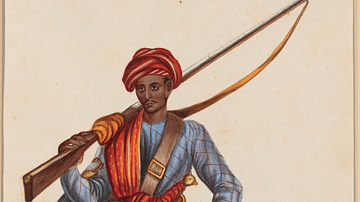
Image
Mughal Empire Sepoy
A mid-19th century sepoy musketeer of the Mughal Empire (1526-1857).
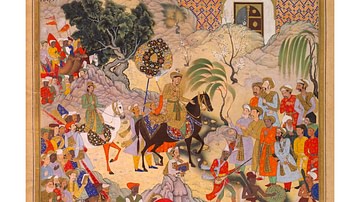
Image Gallery
A Gallery of Mughal Paintings
In this gallery, we present many fine examples of paintings from the Mughal Empire (1526-1857). Espoused and cultivated by the Mughal court, the artform married the bold styles of classical Indian miniature painting, dating as far back as...
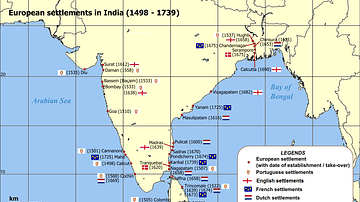
Article
The English and Dutch East India Companies' Invasions of India
In the early 17th century, the Dutch and English East India Companies turned their eyes towards India, as part of their grand schemes to develop extensive trade networks across the Indian and China Seas. They were faced with two significant...

Definition
Roman Empire
The Roman Empire, at its height (c. 117), was the most extensive political and social structure in western civilization. Building upon the foundation laid by the Roman Republic, the empire became the largest and most powerful political and...
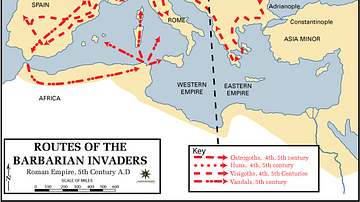
Definition
Western Roman Empire
The Western Roman Empire is the modern-day term for the western half of the Roman Empire after it was divided in two by the emperor Diocletian (r. 284-305 CE) in c. 285/286 CE. The Romans themselves did not use this term. At its height (c...
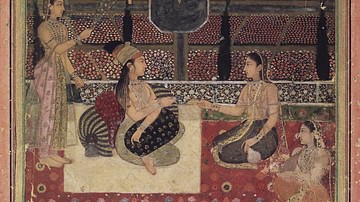
Definition
Urdubegis
The urdubegis were a group of female warriors in the Mughal Empire, who protected the zenana, the harem of the emperor. Although the origins of female bodyguards go back to the beginning of Indian civilizations, the urdubegis were a Mughal...
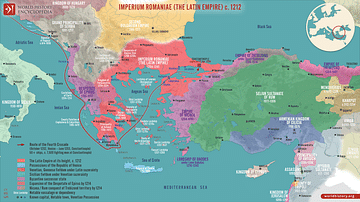
Definition
Empire of Nicaea
The Empire of Nicaea was a successor state to the Byzantine Empire, or rather a Byzantine Empire in exile lasting from 1204 to 1261 CE. The Empire of Nicaea was founded in the aftermath of the sacking of Constantinople during the Fourth Crusade...

Video
The Rise and Fall of the Mughal Empire - Stephanie Honchell Smith
Trace the rise and fall of the Mughal Empire, which became one of the wealthiest and most powerful states in the early modern world. Though he was descended from some of the world’s most successful conquerors, Babur struggled to gain a...
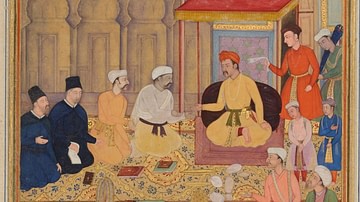
Definition
Ibadat Khana
The House of Worship or the Ibadat Khana was established by Mughal Emperor Akbar (1542-1605 CE) for conducting religious debates and discussions among theologians and professors of different religions. Abu'l-Fath Jalal-ud-din Muhammad Akbar...